Causes Of Scalp Hurting & Best Home Remedies For Scalp Pain
More often, identifying the root cause makes all the difference in treatment.
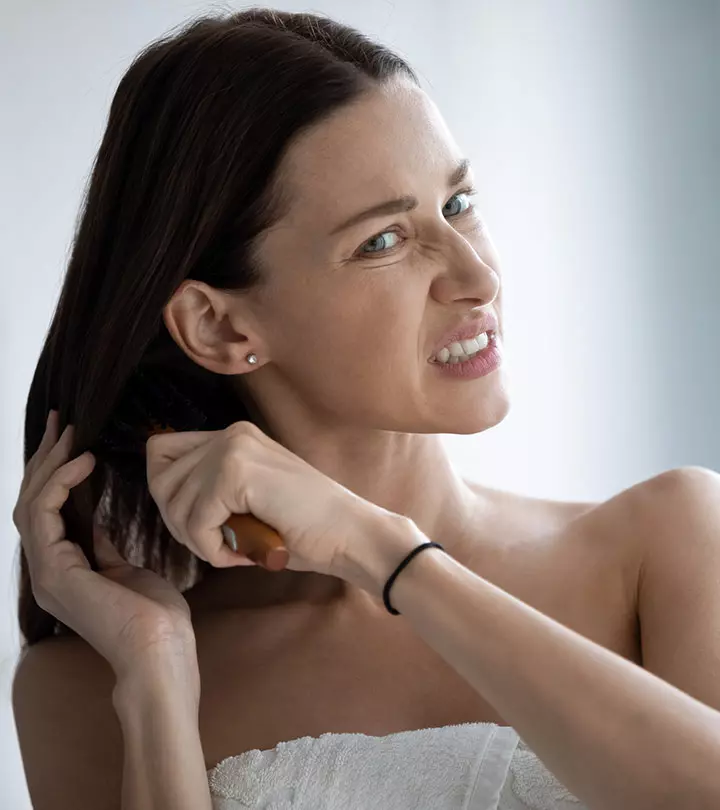
Image: Shutterstock
Your hair roots are situated deep within the layers of the scalp. So if you have felt pain at the roots of your hair, it could actually be your scalp hurting.
This happens when the nerves in your scalp experience pain. This pain can have many causes, including excess sebum production or tight hairstyles. But there are certain treatments that soothe the pain and give your scalp some relief. Continue reading to know more.
In This Article
Why Does Your Hair Hurt?
When you feel like your hair hurts, it is not your hair but the skin beneath that is hurting. The perifollicular area of the scalp around the hair is the source of your pain. Several factors, such as a greasy scalp and compressed hair, can cause scalp pain. If you tie up your hair when it is damp or wear tight, pulling hairstyles, you may experience hair pain.
Balpolam Idi, a blogger has suffered from scalp pain and shared her experience in a blog post. She says, “Ever since I was a little girl, I have always hated tight braids and hairstyles. I never saw the point. I still don’t. All this philosophy of beauty is pain and whatnot is not for me. My sisters and brothers in Kinky hair know exactly what I mean (i).”
Key Takeaways
- When your hair hurts, it is not your hair that is aching; it is the skin beneath that is hurting.
- The source of your pain is the perifollicular area of the scalp around the hair.
- Lemon juice and aloe vera are two great home remedies for treating scalp pain.

Why Does Your Hair Hurt When You Do Not Wash It?
The scalp secretes sebum, a natural waxy oil produced by the sebaceous glands. This oil keeps your scalp moist and plays a crucial role in protecting it from infections. However, the overproduction of sebum can cause some serious hair issues.
Excess oil or sebum secretion causes the growth of yeast on your scalp and hair (1). This can lead to scalp problems like scalp inflammation, redness, itchiness, scaling, and dandruff.
Shampooing your hair periodically helps eliminate grease, excessive oil, and harmful yeasts. This will minimize the pain and help you recover from a sensitive scalp.
But if the pain persists, it can be the symptom of an underlying condition. Visit a dermatologist and get the recommended tests done to diagnose the root cause of this issue.
Prominent Reasons For Scalp Pain From Moving The Hair
As stated earlier, the hair is made of dead cells and cannot feel any pain. It is always the scalp that experiences pain when you tie, pull, or even move the hair. Scalp pain when you move your hair can be a symptom of other health conditions, such as:
- Headache
- Stress
- Scalp soreness and burning
- Tight hairstyles
- Allergies
- Eczema
- Dandruff
Lets now look at a few major causes of a sore scalp in the next section.
What Are The Causes Of A Sensitive Scalp?
Scalp sensitivity starts with slight irritation, itching, or a tingling sensation but can turn severe if not treated soon. Your scalp becomes sore and sensitive due to the following hairstyling habits or health conditions:
- Scalp psoriasis
- Seborrheic dermatitis (dandruff)
- Scalp folliculitis
- Allergic contact dermatitis
- Trichodynia
- Aggressive brushing
- Frequent heat styling
- Trigeminal Neuralgia
- Occipital Neuralgia
- Shingles
- Temporal Arteritis
- Peripheral Neuropathy
Scalp pain is temporary and can be treated easily. Check out these simple ways to reduce scalp pain. Scroll down.
Tips To Relieve Scalp Pain
- Rinse your scalp with cool water and a mild shampoo instead of harsh cleansers.
- Avoid fragrant oils or serums that can irritate your scalp and damage your hair.
- Comb your hair gently using a soft-bristled brush.
- Apply diluted lavender and rosemary essential oils to your scalp.
- Opt for a massaging moisturizer, UV light therapy, and application of coal tar extract.
- Consider stress management therapies and meditation and practice mindfulness to reduce headaches.
- Use antibacterial shampoos to prevent yeast infection and dandruff that might lead to scalp pain.
- Do not style your hair in high ponytails, updos, buns, and braids. Always go for loose hairstyles.
 Quick Tip
Quick TipYou can also treat scalp pain with the effective home remedies listed below.
Best Home Remedies For Scalp Pain
Here is a list of some helpful home remedies for scalp pain.
1. Lemon Juice
Lemon juice has astringent properties that help cleanse your scalp and remove buildup, oils, and pollutants.
You Will Need
- 2-3 tablespoons of lemon juice
- Shampoo/conditioner
Directions
- Mix the lemon juice into your shampoo or conditioner.
- Massage your scalp with this mixture for five minutes.
- Rinse with cold water.
 Quick Tip
Quick TipAloe vera is an excellent soothing agent. It helps alleviate scalp pain, treats itchy scalp, and cleanses oily pores.
2. Aloe Vera
You Will Need
- Fresh aloe vera leaf
Directions
- Cut the aloe vera leaf and extract its pulp. You can also use commercial aloe vera gel.
- Massage this pulp onto your scalp and leave it on for 30 minutes.
- Rinse your hair with warm water.
- Follow up with a mild shampoo.
3. Coconut Oil
You Will Need
- Extra virgin coconut oil
Directions
- Warm the coconut oil slightly.
- Section hair for easy application.
- Apply the oil directly to the scalp using your fingertips.
- Gently massage in circular motions for 5 to 10 minutes.
- Leave to rest for a minimum of 30 minutes.
- Rinse with lukewarm water and shampoo and condition as usual.
4. Tea Tree Oil
You Will Need
- Tea tree oil
- Coconut or jojoba oil
Directions
- Mix a few drops of tea tree oil with any carrier oil such as jojoba or coconut oil.
- Gently massage the diluted mixture on the scalp.
- Leave it on for 15 to 20 minutes.
- Rinse thoroughly with warm water and mild shampoo.
5. Apple Cider Vinegar
You Will Need
- Apple cider vinegar
- water
Directions
- Dilute the apple cider vinegar with water in a 1:4 ratio.
- Apply it on your scalp using a spray bottle.
- Massage it for a few minutes.
- Leave it on for 15 minutes.
- Rinse thoroughly and use a mild shampoo.
6. Cold Compress
You Will Need
- Ice cubes or a gel cold pack
- A clean cloth or towel
Directions
- Wrap the ice cubes or cold pack in a cloth or towel.
- Apply it gently to the areas of your scalp where you feel pain or tenderness.
- Hold the compress in place for 5 to 10 minutes at a time.
- Repeat as needed, ensuring breaks in between applications to prevent skin irritation.
Now that you know how to treat scalp pain, let us rewind and get to how to prevent scalp pain from happening in the first place. Here are some common reasons for scalp pain and how to beat it.
Preventive Measures For Scalp Pain
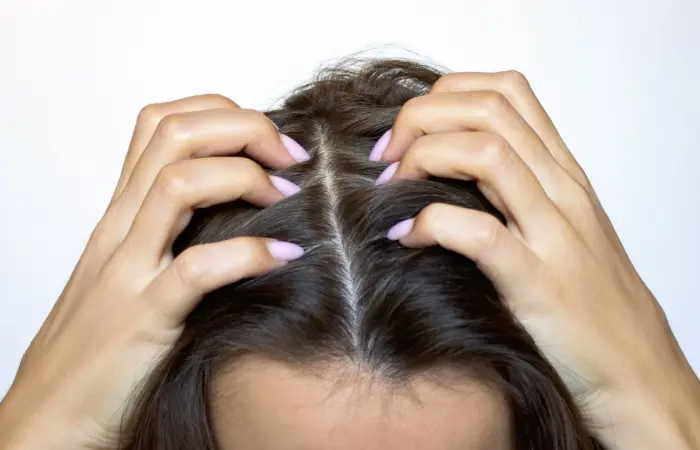
Scalp pain can result from various factors, but you can maintain a healthy and pain-free scalp by adopting effective preventive strategies. Read on to know them!
1. Avoid Tight Hairstyles
Wearing tight hairstyles like ponytails, braids, or buns all the time can strain your scalp and cause tension headaches. To avoid this, choose loose styles that don’t excessively pull on your hair. Use gentle hair ties, such as scrunchies or spiral bands, and change your hairstyle regularly to prevent constant pressure on the same areas.
2. Maintain Proper Scalp Hygiene
A clean scalp is essential for preventing irritation and discomfort caused by dirt, oil, and product buildup. Wash your hair regularly using a mild, sulfate-free shampoo and exfoliate your scalp weekly to remove dead skin cells. Avoid overloading your hair with styling products, as they can clog hair follicles and lead to sensitivity.
3. Choose Gentle Hair Care Products
Always go for hypoallergenic, dermatologically tested shampoos and conditioners. Avoid alcohol-based or heavily fragranced products that may cause dryness or itching, and always perform a patch test before trying new products.
4. Protect Your Scalp From Sun Damage
Excessive sun exposure can lead to scalp burns and sensitivity. Protect your scalp by wearing hats or scarves outdoors and applying sunscreen sprays specifically designed for the scalp. Avoid direct sunlight during peak hours to minimize exposure.
5. Stay Hydrated And Eat A Balanced Diet
Dehydration and nutrient deficiencies can negatively affect scalp health. Drink a lot of water and incorporate foods rich in vitamins and omega-3 fatty acids into your diet to nourish your scalp and promote overall hair health.
6. Manage Stress Effectively
Stress can contribute to tension headaches and scalp sensitivity. Practice relaxation techniques like meditation, yoga, or deep breathing exercises to lower stress levels. Regular physical activity and sufficient sleep also play a big role in stress management and maintaining scalp health.
7. Avoid Overheating Your Scalp
Excessive heat from styling tools can dry out your scalp and irritate it. Use heat protectant sprays when styling your hair, and moderate the temperature on tools like blow dryers and flat irons. To prevent damage, minimize the frequency of heat styling.
8. Address Scalp Conditions Promptly
Conditions like dandruff, eczema, or psoriasis can cause persistent scalp pain. Consult a dermatologist for diagnosis and treatment if you notice symptoms like flaking, itching, or redness. Use medicated shampoos or prescribed treatments to manage these conditions effectively, and avoid scratching the scalp to prevent further irritation.
9. Wear Comfortable Headgear
Tight hats, helmets, or headbands can create pressure on your scalp, leading to pain. Choose accessories that fit comfortably and allow airflow. Remove them periodically during the day to relieve pressure and improve circulation.
10. Incorporate Scalp Massages
Scalp massages can improve blood flow and reduce tension. Consider using nourishing oils like coconut or argan oil to add hydration while massaging, enhancing your scalp’s health and relaxation.
By incorporating these preventive measures, you can protect your scalp, enhance its health, and reduce discomfort.
In A Nutshell
If you notice your scalp hurting, it could be due to wearing tight hairstyles for a long time or a greasy scalp. Try changing your hairstyle and using a suitable mix of hair care products to reduce this pain. Follow a balanced diet, maintain a healthy lifestyle, and drink lots of water to promote a healthy scalp. However, chronic scalp pain could indicate an underlying medical condition. Consult your healthcare provider to determine what is causing this hair trouble and what your next course of action should be.
Frequently Asked Questions
Can dirty hair cause scalp pain?
Yes, dirty hair signifies buildup on your scalp that could clog your follicles and cause scalp pain.
Why does my scalp hurt when my hair is in a ponytail?
Tight hairstyles like ponytails and buns can cause scalp pain as they pull on the hair roots.
Why does my scalp hurt when I let my hair down?
Hair that is heavy or weighed down by excess oil or product residue can put pressure on the hair roots and lead to scalp pain.
Discover the possible reasons behind scalp pain and how you can treat it in the video below. It also involves some essential pointers to keep in mind if you are experiencing scalp pain. Click play to understand these underlying causes.
References
Articles on StyleCraze are backed by verified information from peer-reviewed and academic research papers, reputed organizations, research institutions, and medical associations to ensure accuracy and relevance. Read our editorial policy to learn more.
- A Practical Guide to Scalp Disorders,
https://www.sciencedirect.com/science/article/pii/S0022202X15526572
Read full bio of Ky Smith
Read full bio of Arshiya Syeda
Read full bio of Anjali Sayee
Read full bio of Swathi E






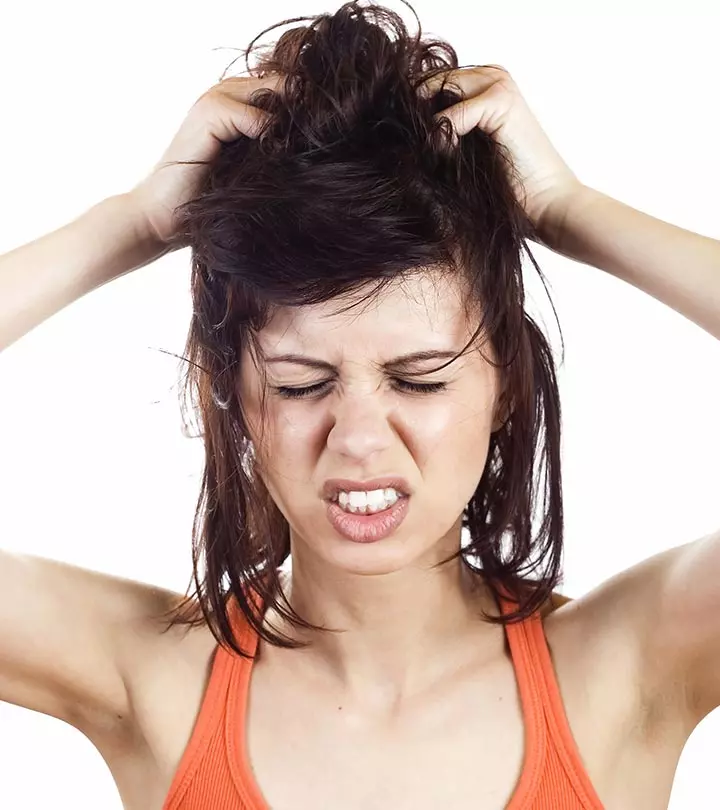
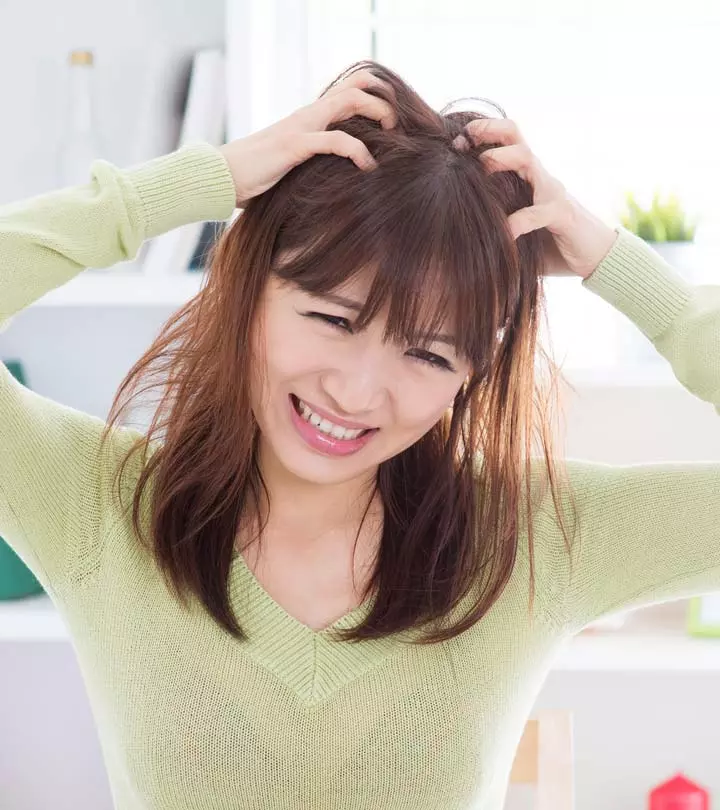
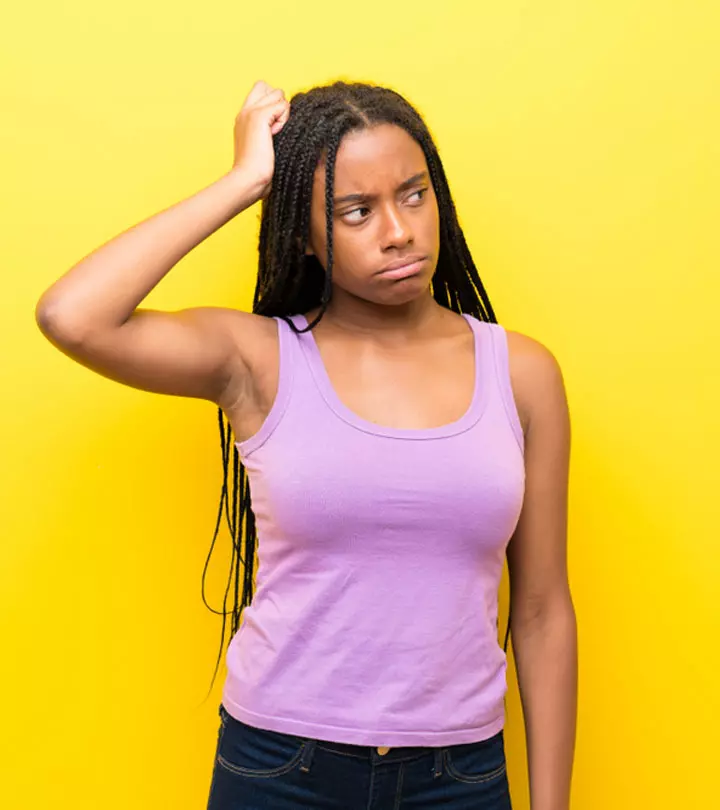
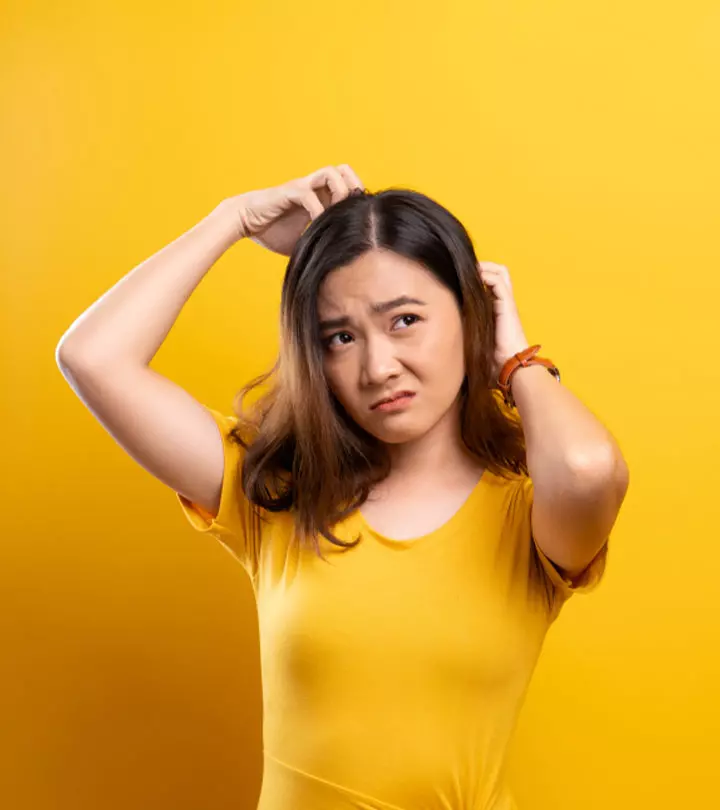
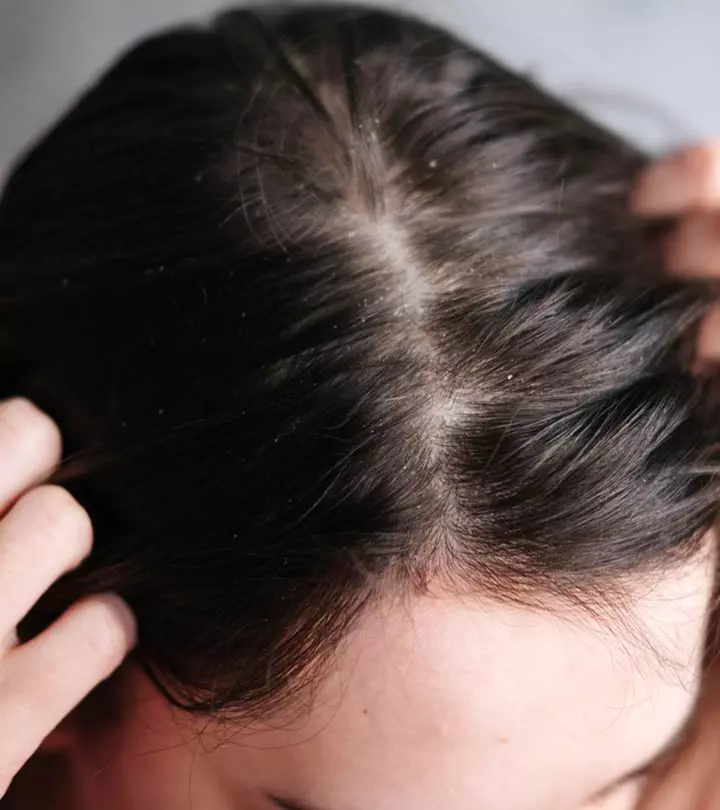
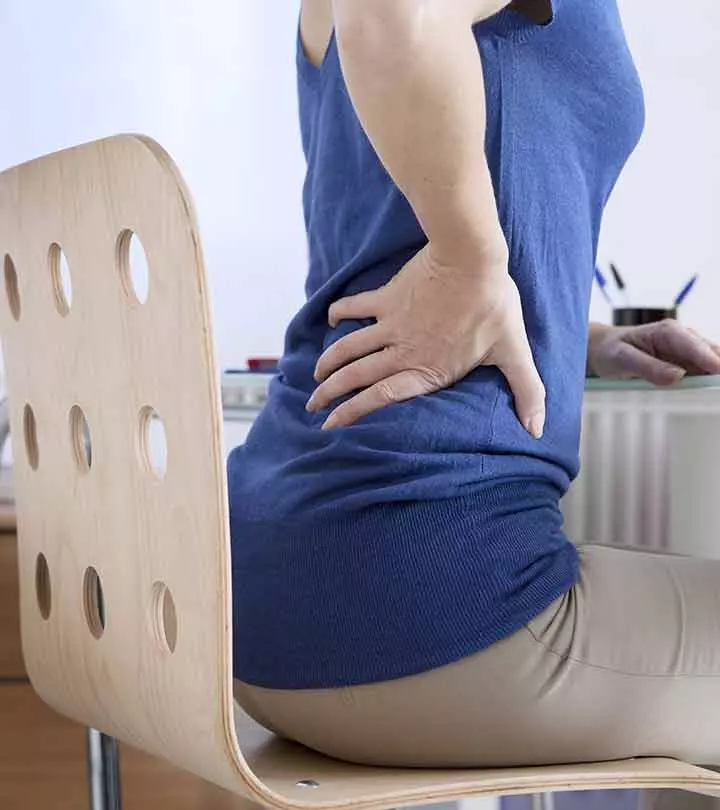

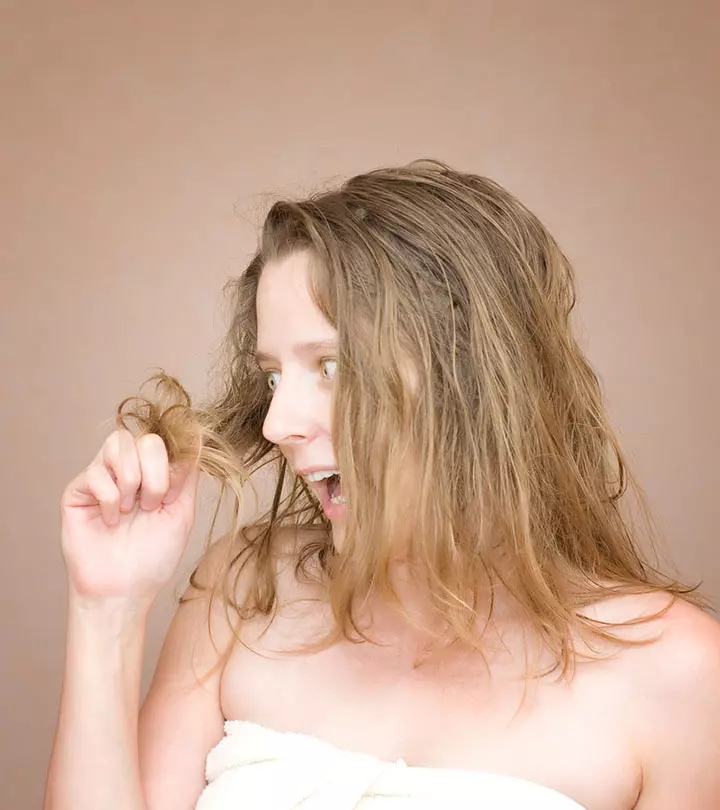
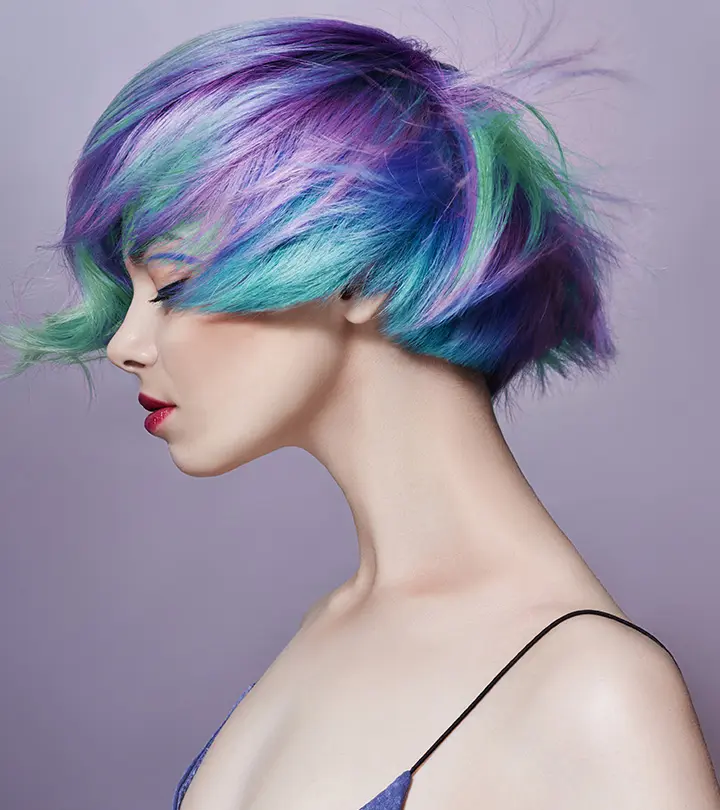

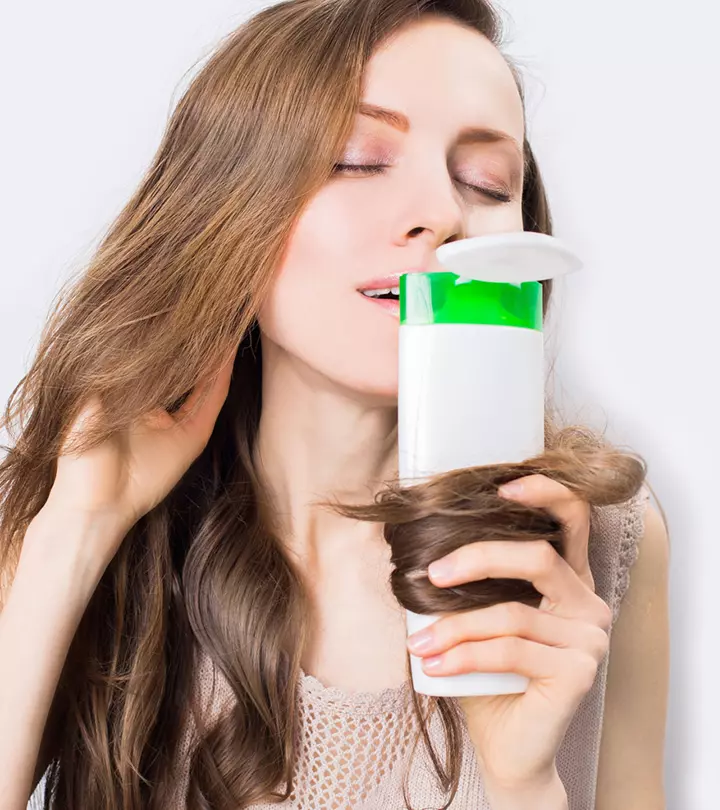
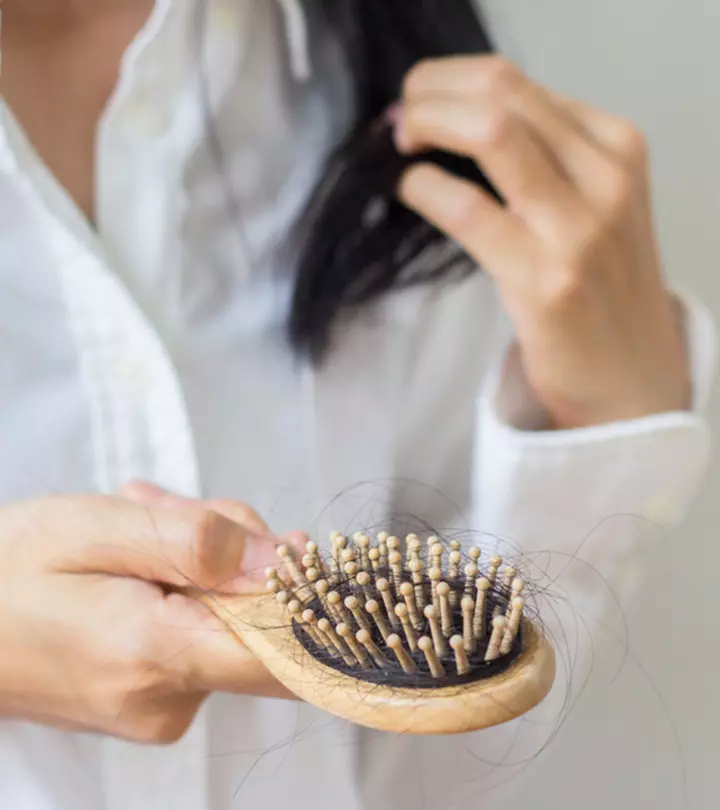
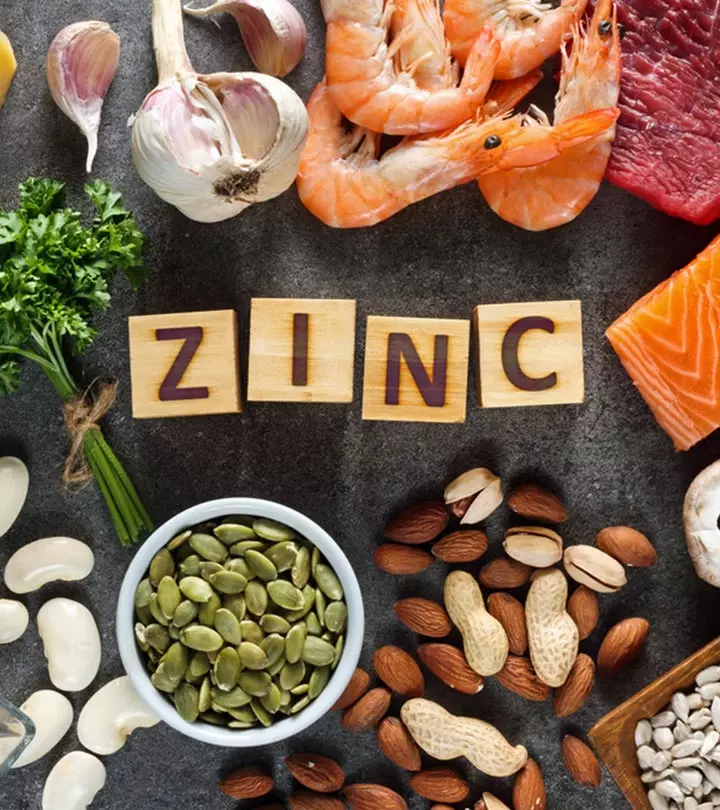

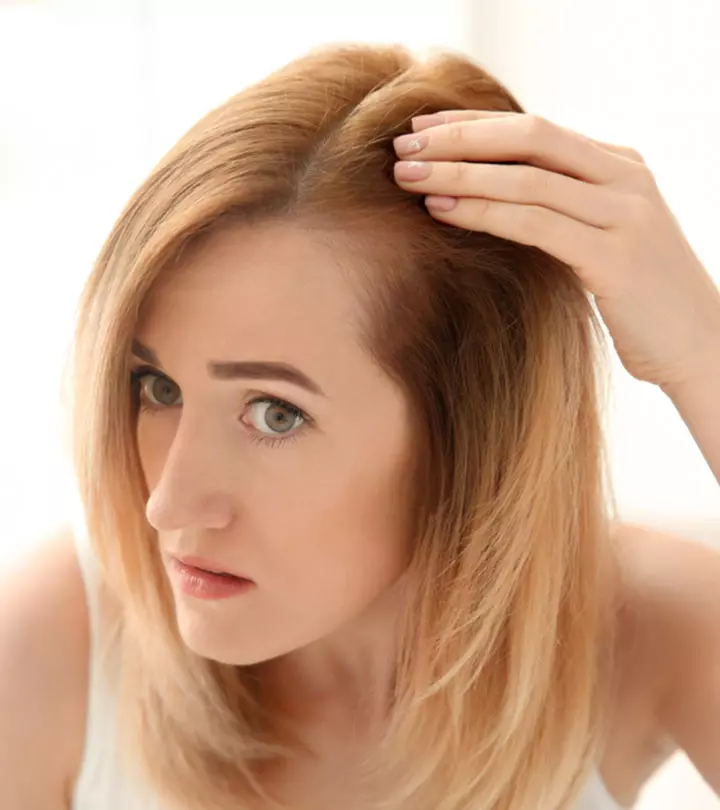
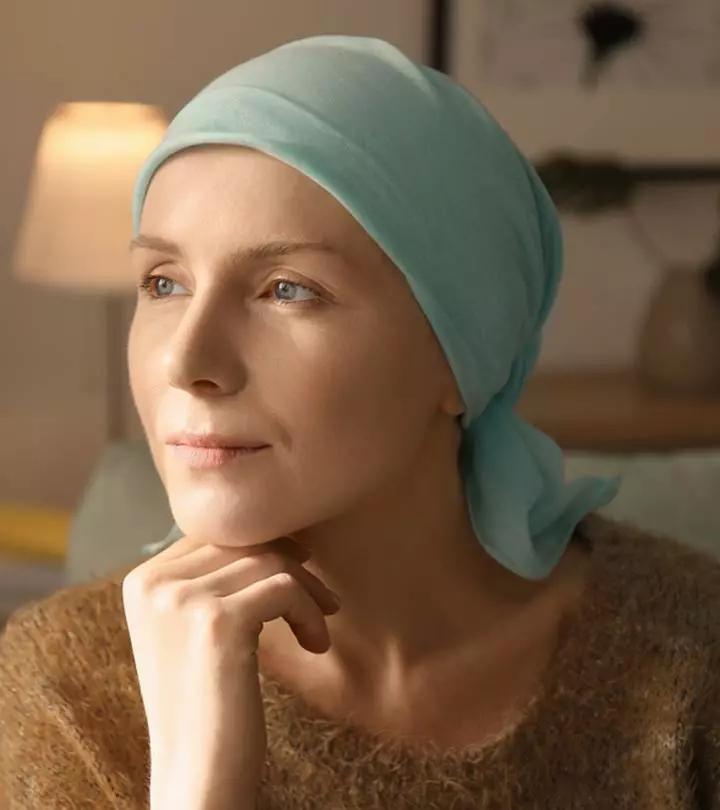
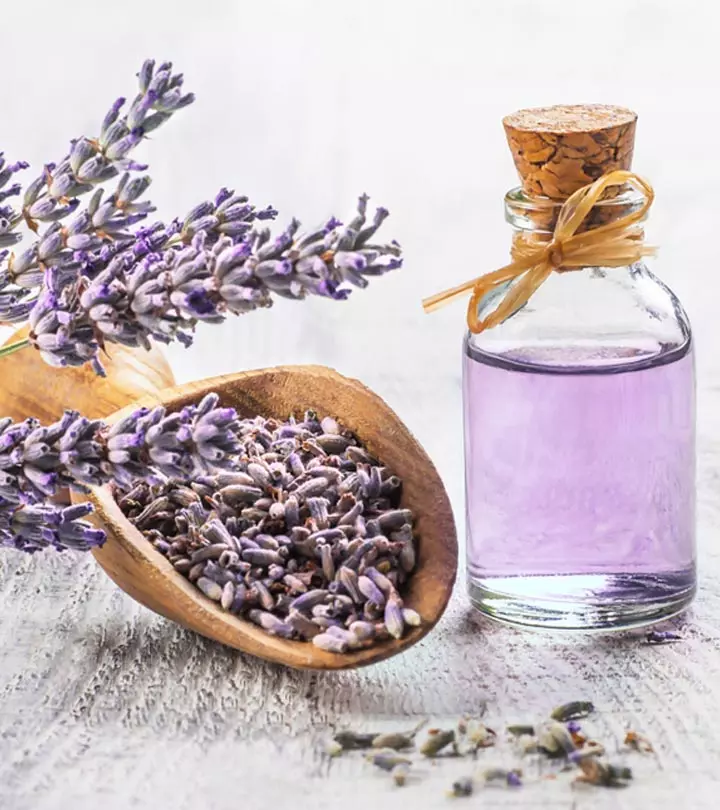
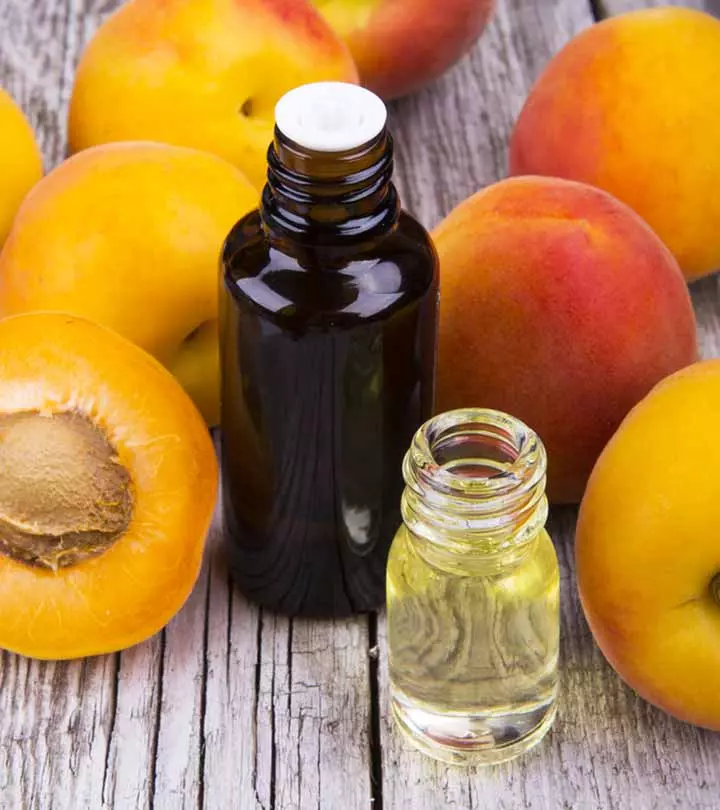
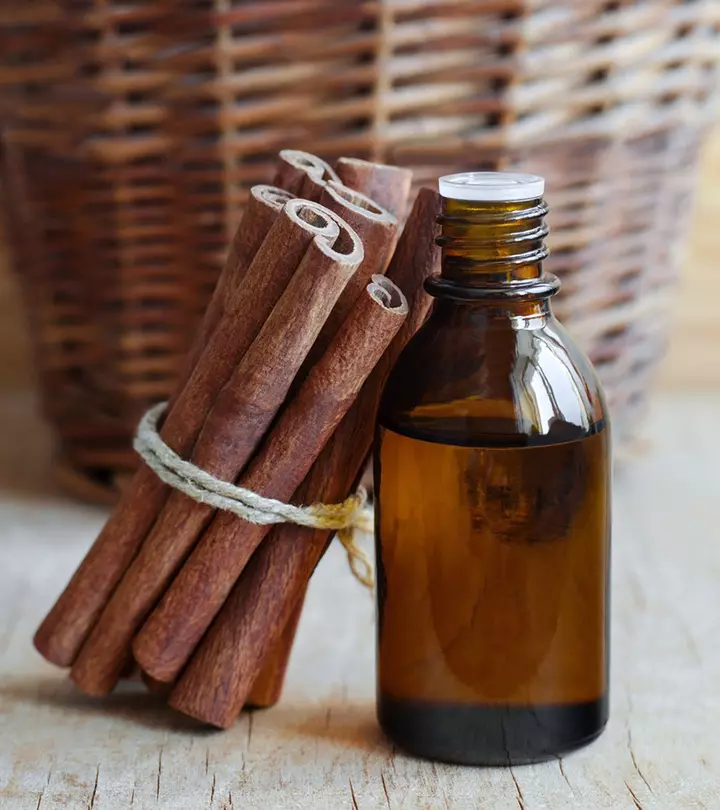
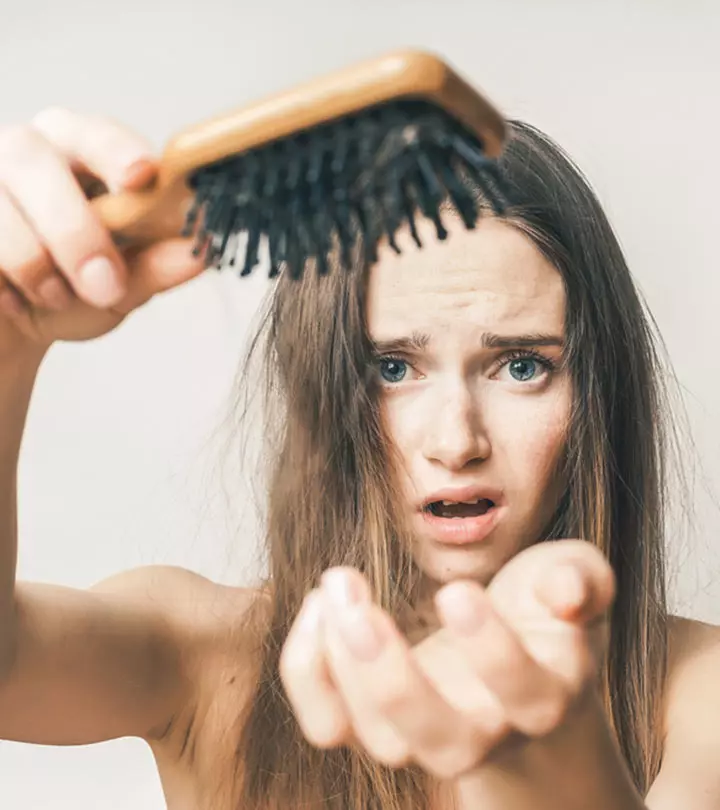
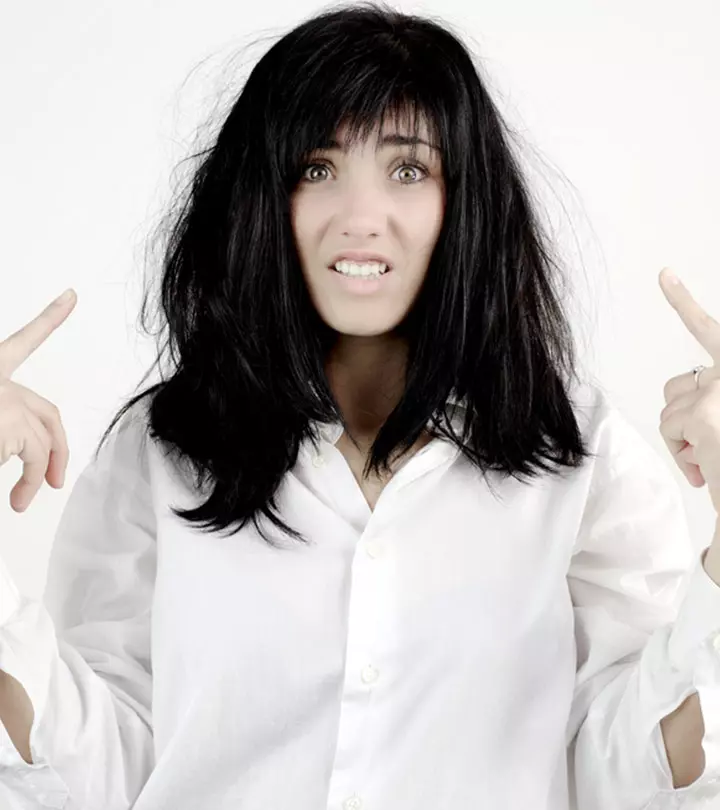
Community Experiences
Join the conversation and become a part of our empowering community! Share your stories, experiences, and insights to connect with other beauty, lifestyle, and health enthusiasts.